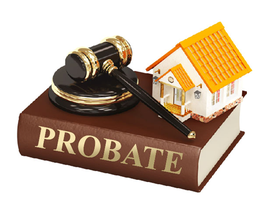Probate can tie up the estate for months and be an added expense. Some states have a streamlined process for less valuable estates, but probate still has delays, extra expense and work for the estate administrator. A probated estate is also a public record anyone can review.
Forbes’ recent article entitled “7 Ways To Avoid Probate Without A Living Trust” says that avoiding probate often is a big estate planning goal. You can structure the estate so that all or most of it passes to your loved ones without this process.
A living trust is the most well-known way to avoid probate. However, retirement accounts, such as IRAs and 401(k)s, avoid probate. The beneficiary designation on file with the account administrator or trustee determines who inherits them. Likewise, life insurance benefits and annuities are distributed to the beneficiaries named in the contract.
Joint accounts and joint title are ways to avoid probate. Married couples can own real estate or financial accounts through joint tenancy with right of survivorship. The surviving spouse automatically takes full title after the other spouse passes away. Non-spouses also can establish joint title, like when a senior creates a joint account with an adult child at a financial institution. The child will automatically inherit the account when the parent passes away without probate. If the parent cannot manage his or her affairs at some point, the child can manage the finances without the need for a power of attorney.
Note that all joint owners have equal rights to the property. A joint owner can take withdrawals without the consent of the other. Once joint title is established you cannot sell, give or dispose of the property without the consent of the other joint owner.
A transfer on death provision (TOD) is another vehicle to avoid probate. You might come across the traditional term Totten trust, which is another name for a TOD or POD account (but there is no trust involved). After the original owner passes away, the TOD account is transferred to the beneficiary or changed to his or her name, once the financial institution gets the death certificate.
You can name multiple beneficiaries and specify the percentage of the account each will inherit. However, beneficiaries under a TOD have no rights in or access to the account while the owner is alive.
Contacting an estate planning attorney will bring you peace of mind. Call us today to schedule a consultation.
Reference: Forbes (March 28, 2022) “7 Ways To Avoid Probate Without A Living Trust”




